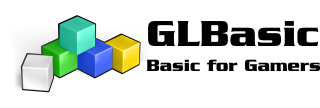Perhaps change the name to something else like mytest-dll. For some reason if I make a name with a hyphen, it builds the dll, an exe and the wrapper gbas file. Only if i use a hyphen in the name. No idea why.
Perhaps the name drivers.dll may be confusing something somewhere ? Just a thought.
Perhaps the name drivers.dll may be confusing something somewhere ? Just a thought.


